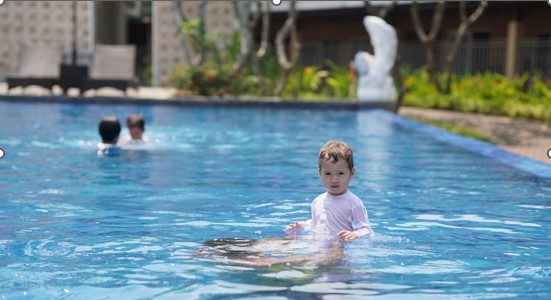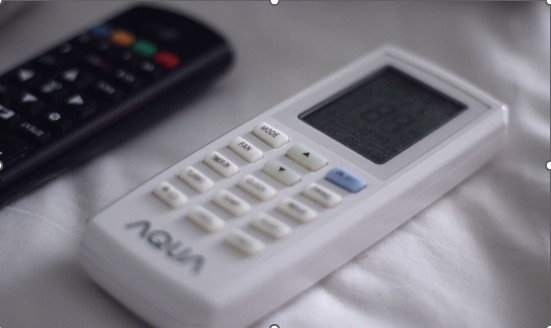Top 5 Advice On How To Choose A Robotic Pool Cleaner
by Abdul Aziz Mondal Real Estate Published on: 12 May 2023 Last Updated on: 05 June 2023

The crystal clear water in the swimming pool is a magnet on a hot summer day. The main problem for all swimming pool owners is to maintain it effortlessly. That is why when the summer begins, the requests for pool cleaners are increased in search engines.
The pool’s proper maintenance requires several cleaning steps:
- Removal of leaves, twigs, or other debris from the water surface.
- Addition of chemicals to kill all algae and bacteria.
- Scrubbing of the pool’s floor, walls, and waterline.
All cleaning steps can be performed manually but require time, especially pool scrubbing. It is essential to clean the pool with frequent use at least twice weekly so that you may spend more time scrubbing than swimming! Therefore, we propose to use pool cleaners. There are several types of automatic pool cleaners: suction side, pressure side, and robotic pool cleaners. Suction and pressure side cleaners are required in connection to your filter system, while robotic cleaners can work autonomously and clean the pool without guidance. Different manufacturers produce robotic cleaners with different functionality; this article summarizes the top 5 tips for choosing the best one.
Top 5 Advice On How To Choose The Best Robotic Pool Cleaner
Robotic pool cleaners are the most expensive among all pool cleaners. Many factors determine the price; the most essential is their ability to clean water, suction power, and runtime. So, you should know how to choose the best robot for your needs.
Determine Your Pool Size, Type, And Material.

Almost all robotic pool cleaners are suitable for inground pools, and only a few can clean above-ground pools. The size of your swimming pool is essential when you choose a cleaner with a cable cord, as the distance from the socket to the furthest part of the pool should be less than the cord length.
If your pool cleaner works from batteries, you need to check the runtime; it should be enough to clean your pool. This pool cleaner does not have the possibility to recharge and continue from the left place of a robotic vacuum cleaner. The pool material can be tiles, fiberglass, or vinyl. The vinyl pools are the most sensitive for the pool cleaner tires. That is why please check the robot’s characteristics before purchasing.
Determine The Area You Want To Be Cleaned.
The shape of the swimming pool is not an issue for robots, but the steps, floor with angle, and waterline may become a hard point to clean. For example, in the comparison of the most popular robotic cleaners, Dolphin vs. Polaris pool cleaners, only one of five models can clean a waterline. This model is the most expensive. You need to estimate how much money you want to spend on the cleaner. You can buy a cheaper model only for walls and floor and manually clean the waterline with a brush.
Determine The Filter Type.
You need to define the size of the most common debris in your swimming pool. For leaves, bags, or other large debris, you need a large filter bag with a large mesh; for sand and dirt, you need a fine or ultra-fine filter for particles less than 0.1 microns. Many robotic pool cleaners come with several types of filters, or you may purchase additional filters with the required mesh size. You also need to pay attention to the location of the filter basket. The robots with top load are easier to maintain; you do not need to turn over the heavy cleaner. Nevertheless, all filter baskets are cleaned with hose water.
Determine The Required Runtime, Cleaning Cycle, And Scheduling.
Smart pool cleaners map the pool automatically; some can even detect the dirtiest spots. But most of them clean the pool based on set algorithms/programs. Some cleaners have fast cycles for everyday cleaning and a long cycle. You can check the estimated runtime for one cycle based on your pool size. It may require several cycles for complete cleaning of your swimming pool. The convenient option is to set a schedule of cleaning procedures; for most cleaners, you can set a cleaning cycle for every day, every second, or third day. After several runs of your robot, you can figure out how often you require cleaning. If you set a schedule, your pool cleaner should constantly be in the swimming pool. A constant presence in water does not prolong the robot’s lifetime. Also, it is recommended not to swim while your cleaner is in the pool.
Determine The Necessity Of Remote Control.

It is convenient to prepare your swimming pool while you are at work or in the shop. Using smartphone applications, you may check the current cleaning progress and find out about problems and breakages.
These five pieces of advice are essential for choosing a robotic cleaner. Still, you may also be interested in other parameters: the number of scrubbing brushes, the brush speed, the indicator of the full filter basket, the pool cleaner weight, availability of a fast water-releasing system. The more necessary options you choose, the less choice on the market you will have.
Advantages And Disadvantages Of Robotic Pool Cleaners
The last piece of advice for choosing a robotic pool cleaner is to understand its advantages and disadvantages. This will help you to understand if you really need the one.
| Pros
● Energy efficiency ● Time-saving (robot cleaners clean faster and more efficiently) ● Coverage of all remote places of the pool if you have chosen the model correctly ● Scheduling of cleanings for a week in advance ● Remote control ● Some models can clean at night ● Several brushes for efficient cleaning ● Decrease the quantity of the chemical for cleaning the pools | Cons
● Expensive ● Limited warranty ● Limitations of cord length ● Not all models are equipped with swivel and tangle-free cables ● No booster pumps are required |
As you see, the number of pros is higher than the cons. That means the robotic cleaner is definitely the right choice.
Conclusion
There are at least five things to consider to choose the best robotic pool cleaner. So, before you make the purchase, please perform research on your pool requirements. The market proposes for at least ten years a wide choice of robots per every pool size and shape. These robots are safe; they do not produce chemicals, are energy efficient, and can be controlled remotely. The robotic pool cleaner will be a perfect helper on a warm summer day!
Read Also:



































































































